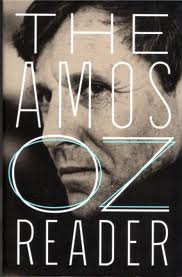Jewish Literary Links for Shabbat

Shabbat shalom.

Shabbat shalom.
 I am not, alas, among the thousands of people journeying to Seattle today for the annual conference of the Association of Writers & Writing Programs (AWP). This year, the conference is too far away, too costly, and too heavy a tax on my vacation-day bank here at the day job to make the trip worthwhile.
I am not, alas, among the thousands of people journeying to Seattle today for the annual conference of the Association of Writers & Writing Programs (AWP). This year, the conference is too far away, too costly, and too heavy a tax on my vacation-day bank here at the day job to make the trip worthwhile.
That said, I’m an AWP veteran, having registered for and attended eight of its conferences since 2001. (Last year, I didn’t register, but made a quick trip to Boston on the conference’s last day to see friends and stroll through the Bookfair without having paid for registration on the conference’s last day.)
In this post, I’ll share some archival offerings describing them–and offer you an article from 2011 with advice for conference-goers (much of which remains useful!). (more…)
Monday brings the weekly batch of no-fee competitions/contests, paying submission calls, and jobs for those of us who write (especially those of us who write fiction, poetry, and creative nonfiction).
 A Jew, in my unhalachic opinion, is someone who chooses to share the fate of other Jews, or who is condemned to do so.
A Jew, in my unhalachic opinion, is someone who chooses to share the fate of other Jews, or who is condemned to do so.
Moreover: to be a Jew almost always means to relate mentally to the Jewish past, whether the relation is one of pride or gloom or both together, whether it consists of shame or rebellion or pride or nostalgia.
Moreover: to be a Jew almost always means to relate to the Jewish present, whether the relation is one of fear or confidence, pride in the achievement of Jews or shame for their actions, an urge to deflect them from their path or a compulsion to join them.
And finally: to be a Jew means to feel that wherever a Jew is persecuted for being a Jew—that means you.
Source: Amos Oz, “The Meaning of Homeland” (trans. Nicholas de Lange)

Another Sunday in which I participate in David Abrams’s “Sunday Sentence” project, which asks others to share the best sentence(s) we’ve read during the past week, “out of context and without commentary.”
The rain beat furiously against the darkened windows, as if it were demanding that we listen with rapt attention to some urgent message it had to deliver.
Source: The Amos Oz Reader, selected and edited by Nitza Ben-Dov (this sentence from a translation by Nicholas de Lange). Truly, there are so many gorgeous sentences in this book.